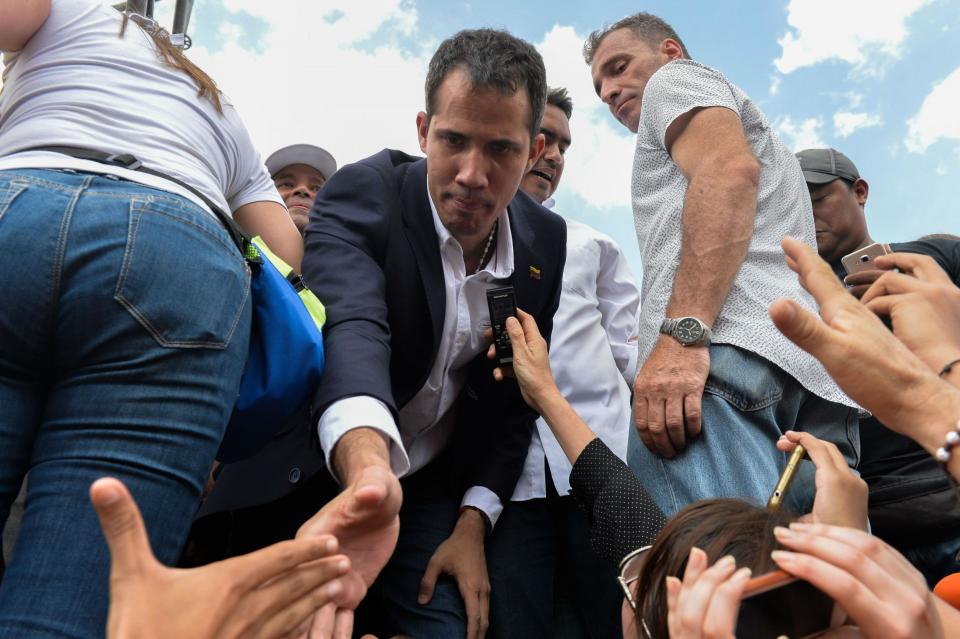Juan Guaido: Opposition leader tells supporters ‘we are going to celebrate’ after returning to Venezuela
Venezuelan opposition leader Juan Guaido has returned to Caracas after defying a travel ban – telling supporters “we are going to celebrate this small victory today”.
Ten days after he ignored the ban imposed by Nicolas Maduro and travelled first to Colombia for a series of meetings with leaders to seek international support to help oust him, he returned to Caracas and addressed a rally.
“Hope has been born and it will not die – things are going well,” the 35-year-old told a crowd at a plaza in the Las Mercedes district.
Urging his supporters to take to the streets once again, he added: “We’re much stronger than ever.”
The leader of the country’s national assembly declared himself Venezuela’s “legitimate” president in January, days after Mr Maduro was sworn in for a second term following elections in 2018.
Many in the international community questioned the legitimacy of the May 2018 elections, which were boycotted by much of the opposition, though they were defended by Mr Maduro’s supporters and some independent observers.
The conservative Mr Guaido has been recognised as interim president by more than than 50 countries, notably the US, UK, Brazil and Canada. A number of foreign diplomats were present at Caracas’ Simón Bolívar International Airport on Monday morning, to try and ensure the politician was not arrested as he returned to the country.
Among the countries that still recognise Mr Maduro as leader are Russia, China and Mexico.
United Nations Secretary-General Antonio Guterres has stressed the only way the political conflict in Venezuela can be resolved is through political dialogue. Spokesman Stephane Dujarric told reporters on Monday that the UN “obviously remain very concerned about the situation in Venezuela”.
“It’s important that all political actors in Venezuela and abroad make all efforts to lower tensions,” he said.
Mr Guaido has sought to use aid as a lever with with to put extra pressure on Mr Maduro, who was first elected in 2013 following the death of Hugo Chavez.
Last week, his supporters tried to transport aid the US had airlifted to Colombia across the border, but were prevented from doing so my troops loyal to Mr Maduro.
Mr Maduro has said he is happy to accept aid and the UN had increased its own distribution as the crisis has played out. He has pointed out, that the US has previously used aid shipments to smuggle weapons to groups seeking to overthrow other governments elsewhere in Latin America.
There was no immediate response from Mr Maduro to the return of Mr Guaido who he has turned coup-supporting US puppet. Last week, he said whether or not he was arrested depended on the the justice system.
“He can’t just come and go. He will have to face justice, and justice prohibited him from leaving the country,” he told ABC News.
As it was, it appeared Mr Maduro calculated that arresting Mr Guaido might create more problems than permitting him to hold several days of rallies. The US – which has threatened that “all options are on the table” in regard to Venezuela, had warned the authorities not to arrest Mr Guaido.


